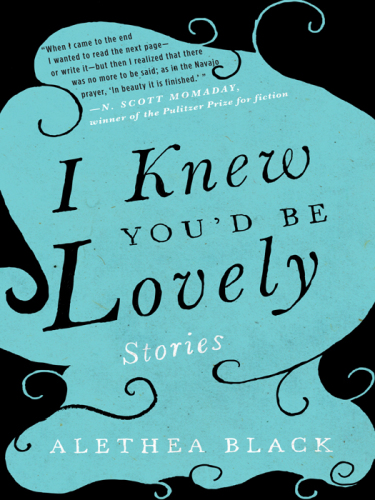
I Knew You'd Be Lovely
Stories
- اطلاعات
- نقد و بررسی
- دیدگاه کاربران
نقد و بررسی

April 4, 2011
A sense of vulnerable restlessness is betrayed by the otherwise pragmatic characters of Black's strong debut collection. Many of these well-meaning, serious protagonists are middle-aged and seized by a paralyzing personal crisis. British botanist Bradley of "That of Which We Cannot Speak" is reeling from the split with his wife back in Islington when he meets a comely laryngitis-stricken doctor in New York; the father of a troubled teenage son in "The Only Way Out Is Through" attempts a perilous camping trip with him to "reconnect"; and a single late-30s schoolteacher, frustrated by her career choice, tracks down her favorite high school teacher for advice in "Good in a Crisis." Big, perhaps unwelcome, surprises lurk for all. For the lawyer protagonist of "The Thing Itself," it is the ecstatic realization that he no longer wants to practice law. For the struggling young New Yorker of "Mollusk Makes a Comeback," it is the example of the resilient mollusk in the Museum of Natural History, "barnacled and determined," rather than the dodo bird, "complacent unto extinction." And, finally, for the young woman of the title story, it will be hitting on the perfect present for her longtime love interest whose attentions have started to wander. A charming tentativeness rattles the polished foundation of these straightforward tales.

April 15, 2011
Characters struggle to overcome their fears and fulfill their desires in a cautiously upbeat set of stories.
"Nothing ventured, nothing gained" could be the unofficial motto of the sensitive young adults who inhabit Black's recognizable world. But often, they must be prodded to act. The opener, "That of Which We Cannot Speak," sets the stage with its depiction of a divorced man trying to connect with an attractive physician at a New Year's Eve party. Her laryngitis makes it impossible for her to speak, so they communicate via a clipboard she keeps around her neck. In the title story, a young woman conquers her jealousy over her boyfriend's friendship with a beautiful writer with a sexy, win-win solution in which everyone gets what they want. "We've Got a Great Future Behind Us" introduces us to an estranged pair of well-known musicians who manage to come together one more time to write a good song about their train wreck of a marriage, and the suburban dad of "The Only Way Out Is Through" turns a family crisis, during a disastrous camping trip, into a last-ditch opportunity to bond with his troubled son. The toll of not taking action is tallied as well, when Elizabeth, the elder sister in "The Summer Before," comes back to her family's summer home after a years-long absence only to realize the ways in which she has not recovered from her parents' divorce. And in the mournful final episode, an aunt must face her own ambivalence toward commitment when her newly widowed sister asks her to sign on as emergency guardian for her young children. Although it could benefit from a bit more warmth toward its protagonists, this debut reads like a dream, with nary a false note.
Well-balanced collection filled with low-key charm and notable talent.
(COPYRIGHT (2011) KIRKUS REVIEWS/NIELSEN BUSINESS MEDIA, INC. ALL RIGHTS RESERVED.)

May 15, 2011
In her debut story collection, Black shows a commitment to character and situation, the basic elements of fiction crystallized in short form that make this genre so appealing to so many. In the opening story, "That of Which We Cannot Speak," a socially awkward, recently divorced Brit on his own in Manhattan meets a woman at a party who wears a clipboard announcing that she has laryngitis and enumerating her responses in block print to the usual range of party questions: "SAMANTHA/YES/NO/NOT SINCE 1979/KIKI AND I WENT TO GRADE SCHOOL TOGETHER/THAT'S WONDERFUL!/THAT'S HORRIBLE!/I KNOW JUST WHAT YOU MEAN." Of course, the two--one deeply distrustful of the spoken word and the other literally without a voice--manage to communicate quite well and with a surprising depth, in much the same way that the constraints of a sonnet can lead to clear utterance of a long-hidden emotional truth. VERDICT The movement toward truth and connection among lovers lost and found may be common ground in the contemporary short story, but Black's stories are in no way common. Readers who once waited impatiently for each new volume, say, by Alice Adams, will be grateful for a writer who offers similar satisfaction.--Sue Russell, Bryn Mawr, PA
Copyright 2011 Library Journal, LLC Used with permission.




دیدگاه کاربران